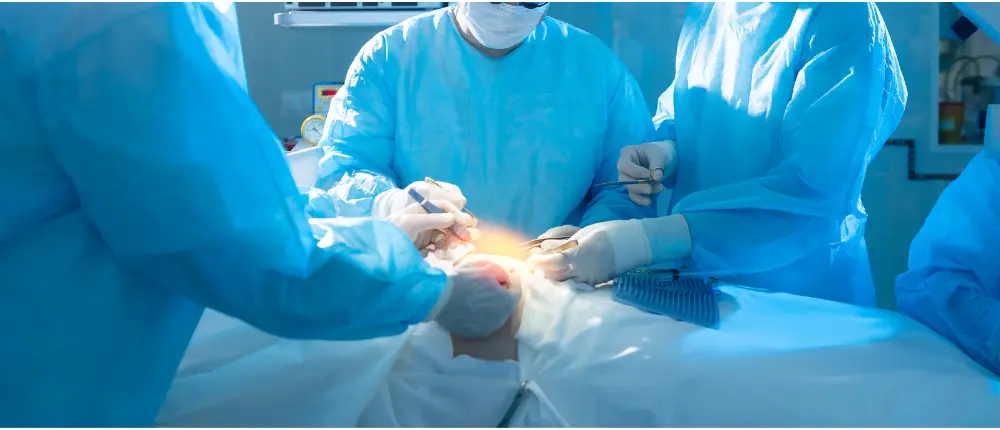Gastric Pacemaker in Dallas-Fort Worth, Mansfield & Plano, Texas
- Home
- Non Surgical Medical Weight Loss
- Medical Weight Loss
- Gastric Electrical Stimulation

A Game-Changer for Weight Loss and Gastroparesis
Gastric Electrical Stimulation (GES) is an innovative therapy designed to help individuals struggling with weight management and gastroparesis. Using a small, battery-powered device known as a gastric pacemaker or gastric stimulator, GES delivers mild electrical pulses to the stomach muscles. This minimally invasive treatment regulates appetite, aids digestion, and improves overall metabolic health, offering hope to patients who have not found success with conventional methods.
How Gastric Pacemakers Work
The gastric pacemaker or gastric stimulator is implanted in the abdomen, with thin wires connected to the stomach. These wires deliver electrical impulses to regulate hunger and digestion. By targeting the stomach’s nerves and muscles, GES helps control appetite and improve symptoms of delayed gastric emptying.
Key Functions of Gastric Pacemaker:
- Appetite Regulation: Reduces hunger signals, helping with portion control.
- Improved Digestion: Enhances gastric emptying, making it an effective treatment for gastroparesis.
- Weight Management: Promotes gradual and sustainable weight loss.
Applications of Gastric Pacemakers
1. Weight Loss
For individuals with obesity, gastric electrical stimulation for weight loss offers a non-surgical alternative to traditional bariatric procedures. By suppressing hunger and promoting satiety, GES supports consistent weight reduction when combined with healthy lifestyle choices.2. Gastroparesis Treatment
Patients with gastroparesis experience delayed stomach emptying, leading to symptoms like nausea, bloating, and vomiting. The gastroparesis stimulator significantly improves these symptoms, enhancing overall quality of life.The Gastric Electrical Stimulation Procedure
GES is a minimally invasive procedure performed under general anesthesia. During the surgery, a gastric pacemaker is implanted under the skin, and electrodes are attached to the stomach muscles. Recovery time is short, and most patients resume normal activities within a week. The device settings can be customized to meet individual needs, ensuring effective results.
Benefits of Gastric Pacemakers
- Appetite Control: Reduces cravings and encourages healthier eating patterns.
- Non-Surgical Option: Less invasive than other weight loss surgeries, with fewer risks and a quicker recovery.
- Improved Digestive Health: Relieves symptoms of gastroparesis, including nausea and bloating.
- Long-Term Results: Helps with sustainable weight management and symptom control.
Consult DFW Bariatrics and General Surgery
If you’re considering a gastric pacemaker for weight loss or gastroparesis in Texas, the expert team at DFW Bariatrics and General Surgery, with offices in Dallas-Fort Worth, Mansfield, and Plano, is here to help. Call us at (469) 620-0222 or Book an Appointment today to take the first step toward better health.
A Game-Changer for Weight Loss and Gastroparesis; our specialists are ready to help.
Contact usFrequently Asked Questions (FAQs)
Yes, GES effectively reduces hunger, aids weight loss, and alleviates gastroparesis symptoms. Results vary by individual, but are often significant when combined with lifestyle changes.
The success rate depends on the condition being treated. For gastroparesis, GES significantly improves quality of life. For weight loss, it helps achieve sustainable results over time.
Gastric pacemaker is suitable for individuals with obesity, gastroparesis, or those seeking a less invasive alternative to bariatric surgery. Consult your doctor to determine eligibility.
Common side effects include mild nausea or irritation at the implantation site. Serious complications are rare but should be discussed with your healthcare provider.
The device typically lasts 5–10 years, depending on battery life and usage. Regular follow-ups ensure its proper function.
Yes, by controlling appetite and enhancing satiety, gastric pacemakers promote gradual and sustainable weight loss.




